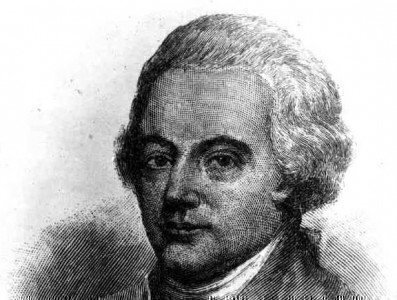Lyle Denniston, the National Constitution Center’s constitutional literacy adviser, looks at how part of the debate about a religious test for presidential candidates has been well-settled constitutionally, from the Founding to the present.

THE STATEMENTS AT ISSUE:
“This latest sordid mess to rise from the G.O.P. nomination contest touches on bedrock American values, constitutional principles, and American history. It reflects a pernicious habit among the leaders of the Republican Party to play with fire by pandering to an angry, disaffected and heavily white base by demonizing selected minorities. Muslims are just the current target. [Candidate Ben] Carson declared Sunday on ‘Meet the Press’ that Muslims are unfit to run for president because a president’s faith should be ‘consistent with the Constitution.’ “
– Excerpt from an editorial in The New York Times on September 23, discussing the controversy over candidate Carson’s remarks in response to a television interviewer’s questions.
“It was largely to escape religious test oaths and declarations that a great many of our early colonists left Europe and came here hoping to worship in their own way.”
– Excerpt from a Supreme Court opinion in 1961, in the case of Torcaso v. Watkins. It was written by Justice Hugo L. Black as the court struck down a state law in Maryland that required as a condition for serving in any public office that the person declare a belief in the existence of God. A Marylander had been denied a notary public commission because he refused to take such an oath.
WE CHECKED THE CONSTITUTION, AND…
Much of the text of the Constitution is written in broad enough terms that different meanings can be suggested, stirring debate that only the Supreme Court (or a constitutional amendment) can settle. But the meaning of some phrases is not at all in doubt. One of those is this wording in Article VI, a part of the original Constitution: “No religious test shall ever be required as a qualification to any office or public trust under the United States.” (Those words have also been extended to apply to the states through the Fourteenth Amendment.)
At the time the Constitution was being drafted, in Philadelphia in the summer of 1787, a number of the existing state governments had religious tests for public office. That was part of their recognition of an established or official religion for their people, somewhat imitating the official recognition of the Church of England for Britons. (The British had enforced that commitment by imposing test oaths for those who would hold public office.)
But it was a delegate from one of those states, Charles Pinckney of South Carolina, who proposed to the Convention the language that now stands in Article VI against any religious oath or test. His proposal was adopted with little debate as an addition to a requirement that public officials – federal and state – take an oath to support the Constitution.
In modern times, religious oath requirements in the states have been nullified, when challenged in court, partly on the basis of the Article VI ban and partly on the basis that the courts have interpreted such oaths as a breach of the constitutional wall between religion and government that is said to have been erected by the First Amendment’s religion clauses. To single out a particular faith, and make a confessed adherence to that belief system a condition for holding public office, has been seen as a threat to both government and religion.
When Article VI was being discussed in the constitutional ratifying convention in North Carolina, delegate James Iredell (later a Supreme Court Justice) was quoted as having said: “It is objected that the people of America may, perhaps, choose representatives who have no religion at all, and that pagans and Mahometans may be admitted into offices. But how is it possible to exclude any set of men, without taking away that principle of religious freedom which we ourselves so warmly contend for?” (In those days, Muslims were sometimes referred to as “Mahometans.”)
Of course, the Constitution is one thing, and political reality may be another. When Al Smith, the three-term governor of New York, ran for the presidency in 1928, the fact that he was a Roman Catholic was widely believed to be an important factor in his defeat for the White House. Not until John Kennedy was elected in 1960 did a Catholic overcome that apparent political barrier. In a historic speech to a group of Protestant clergy in Houston in September of that year, he sought to convince the pastors that he could be trusted to use his independent judgment if elected.
In the current political atmosphere, dominated by the early stages of the presidential nomination campaign, the relationship between religion and government is generating a considerable amount of rhetorical heat. Part of that reflects the lingering religious controversy over abortion, but other parts of it reflect faith-based debate over same-sex marriage. What has emerged most recently is a tense dispute about how America should react to those who follow Islam.
Part of that new phenomenon reflects the fear that has been generated by the rise of the radical ISIS movement in Iraq and Syria, resulting in at least some circumstances in an inability to differentiate the ISIS ideology from traditional Islamic principles. And part of the new controversy is based on a suspicion that elements of the Islamic religious faith (“Sharia law”) will work their way into interpretations of American law. That, too, seems to be quite exaggerated.
It is not at all clear that the level of current political debate about matters of faith and governance will be well-reasoned or will provide a useful teaching moment about the Constitution and the role it plays in defining the interaction between public life and private faith. But the part of the discussion about a religious test for presidential candidates has already been well settled, at least constitutionally speaking – from the Founding to the present.







